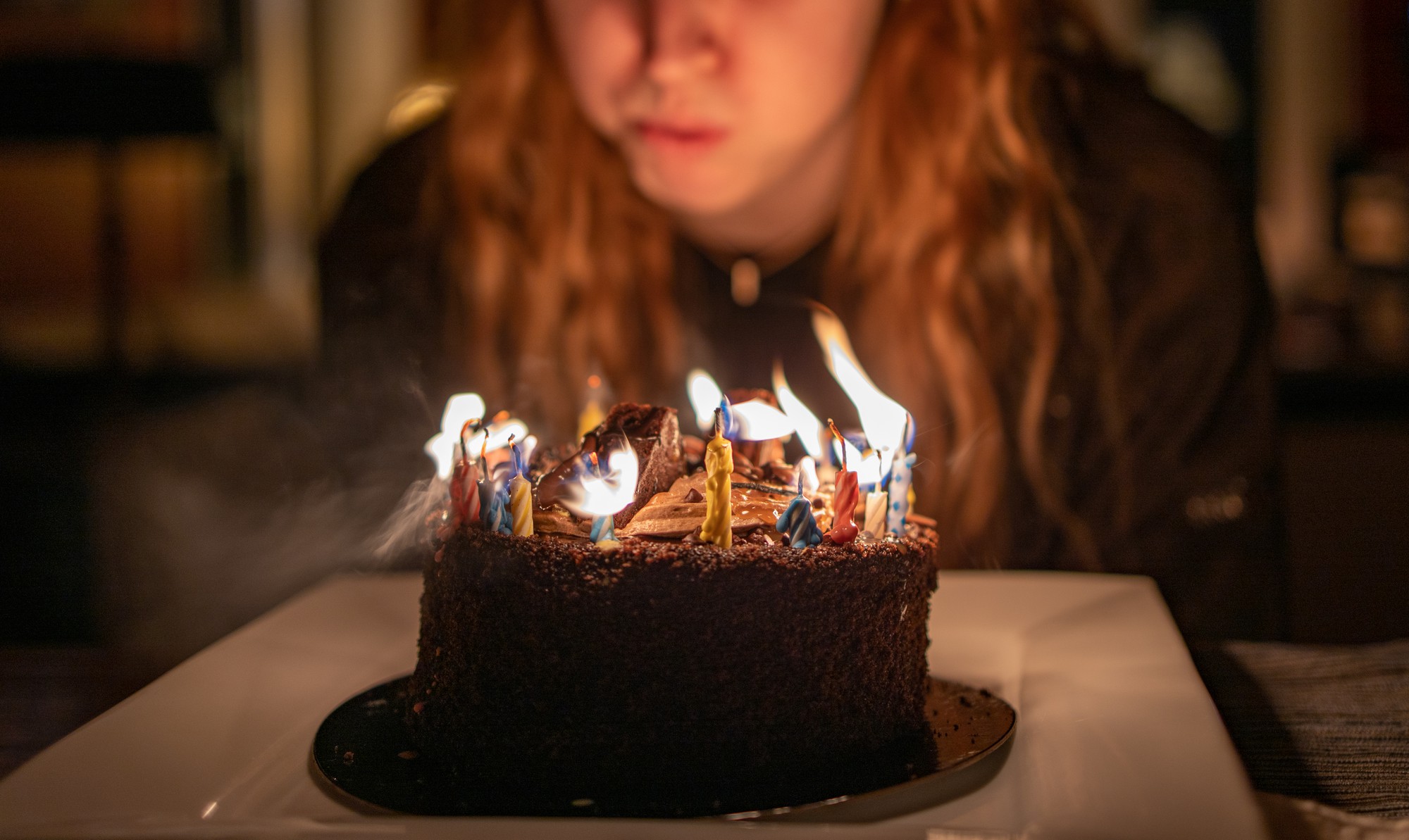When I got out of bed the morning I turned 20, I looked outside and asked myself if the sun was shining just a little brighter for my special day. I would be lying if I said I wasn’t disappointed to feel like the day was as just as ordinary as the next, that I was to continue about my normal life, only this time older. If this is true, then what should I make of this 20th year around the sun?
Thinking about the big Two-Zero is something I have avoided since turning 19. In my head, 19 is glamorous, young and carefree. Once you turn 20, you drop the “-teen” and step into what many feel is a more formal entry into adulthood than turning 18. I know I’m not alone in feeling this way – someone once told me the theme of their 20th birthday was “funeral,” in honor of the death of their teen years.
In a similar spirit, I was looking back on my teen years as if I were now miles away from them instead of minutes, feeling stranded without the blanket of childhood and adolescence to comfort my lack of direction. I envisioned myself climbing a peak and being greeted at the top by my already-20-year-old friends as they welcomed me into their club of wise, all-knowing sages.
The reality is that 20 does not yield any significant milestones for American young adults, such as being able to vote at 18 or drink at 21. But when was the last time I watched a movie about the joys of being 20? Why does 20 feel like such a daunting milestone?
A rather unfortunate facet of mainstream culture is that age is scrutinized beyond what is healthy or necessary. Yes, aging up allows us different privileges in society, but the person I was the day before I turned 18 was no different from the person I was the day after. What changed was the way I expected myself to act and the way I expected to be treated. When people turn 20, the designation puts forth a more mature image to other people. We make the fun of youth seem like a distant fantasy with cosmetics and media, instilling in us a primal fear of becoming, well, “old.”
Once these thoughts started to creep in and I thought 20 was “old,” I knew I needed to change my mindset about a label that should be cause for symbolic celebration but which at its base only signifies the mere passage of time.
A hard and comforting realization I came to was that just because I am turning 20 does not mean I must give up the carefree joys I lived with as a 19-year-old. Like myself, many teens spend a lot of time yearning for the joys of adulthood – for example, going to a club or casually enjoying wine with friends. Just like we looked up to being teens as children, so we look up to adulthood. And even though I don’t think I am as figured-out as little me thought present me would be, I know she would be proud that she came this far – often times I have to stop what I’m doing and remind myself that I get to attend the school I fantasized about when I was in kindergarten.
No 20-year-old I have met has a master plan for life, and hardly anyone at any age ever feels like they are ready to age up. The fun thing about aging is that everyone is scared for it to happen. We can take comfort in knowing that most people don’t “feel their age,” so why pressure ourselves to catch up to our age group in the first place?
Maybe I woke up on my 20th birthday feeling the exact same as I did before, but I feel lucky to know that I did – that I can take my life day by day and enjoy the passage of time surrounded by people I love and who love me for the person I am and always have been, no matter how old.
—
Featured Image via Adobe Stock

